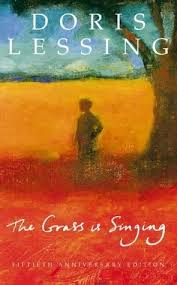Doris Lessing’s The Grass Is Singing (1950) is her debut novel and a powerful exploration of race, class, and psychological tension in colonial Africa, particularly in Southern Rhodesia (modern-day Zimbabwe). It’s a stark, gripping narrative that highlights the complexities and tragic consequences of apartheid and colonial rule.
The story revolves around Mary Turner, a white woman living on a remote farm with her husband, Dick Turner, in the African bush. Mary, once full of life and ambition, finds herself trapped in a life of isolation, resentment, and deteriorating mental health. Her relationship with Dick is strained, and the couple’s interactions with their black servants and the surrounding community add layers of tension, particularly as Mary struggles with her role in the oppressive racial and gender structures of colonial society.
The novel's title, The Grass Is Singing, alludes to the idea of things being hidden or suppressed—like the grass that sings in the wind but remains silent when everything is calm. The book explores themes of repression, racial inequality, the limitations of gender roles, and the psychological toll of colonialism on both the colonizers and the colonized.
One of the novel’s central themes is the profound psychological disintegration of Mary. As she becomes more disconnected from herself and from those around her, her mental state worsens. Lessing’s portrayal of Mary’s decline is a commentary on the emotional isolation that comes with both racial and gender oppression. The novel also delves into the dark undercurrents of colonial life, particularly the ways in which white settlers and their black workers are caught in an unequal, exploitative relationship.
The Grass Is Singing is often described as a tense and unsettling novel that critiques the effects of colonialism on human relationships. It deals with issues of power, control, and the dehumanizing aspects of living in a racially segregated society. Lessing’s sharp, clear prose, combined with her deep psychological insights, makes the novel both an intense character study and a social critique.
Would you like to delve further into the themes of the book or explore any specific characters or moments in the story?












